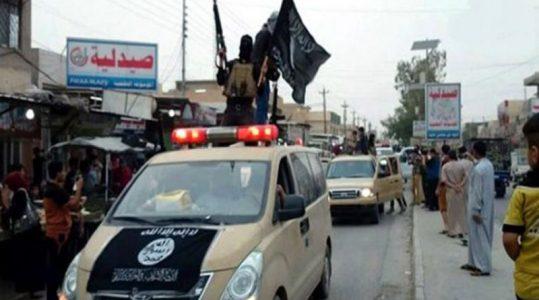
Islamic State terrorist group still casts shadow on Iraq’s Hawija
More than a year after its liberation from the Islamic State (IS), residents of an Iraqi district live in fear of a possible resurgence of extremism, as core issues that contributed to local tribes siding with the militant group remain unaddressed.
Located just under 55 kilometers (34 miles) west of Kirkuk city, the Sunni-majority area nown as Hawija has been a hotbed for recruiting anti-government insurgents since the fall of the former Iraqi regime in 2003.
Since then and up to the IS takeover of large swaths of Iraqi territory, the country went through multiple bouts of sectarian violence between Arab Sunnis and Shia Muslims. Thousands of lives were claimed.
Largely peaceful at the start but later turning violent, a movement of protest came as the fallout of years of administrative neglect amid a tattered infrastructure and economy common across Iraq were just the beginning of resident’s complaints.
Local politicians and activists have long said that, because that Hawija was perceived similarly to areas where insurgent activities have also been common such as Anbar Province’s Fallujah, the population as a whole is often perceived as “terrorists” by government and security leaders in Baghdad. According to human rights groups and media reports, security forces, often elite units entering the area from different provinces, have well-documented histories of sectarian-motivated arrests and mass detentions in Hawija.
In April 2013, former Prime Minister Nouri al-Maliki mobilized troops against demonstrations taking place there. Troops opened fire, killing over 40 protesters and blocking ambulances from taking the wounded to hospitals in Kirkuk. By the end of a three-day campaign, nearly 1000 casualties were reported.
Angered by such incidents, which locals said made them feel as though they were under direct attack from the government, Hawija’s tribal communities became increasingly disaffected with Baghdad. In 2014, some local tribes sided with IS, and, after the collapse of the Iraqi security forces, the area was quickly taken by the group.
After over three years ruling the town and surrounding rural areas, IS fighters finally surrendered to Iraqi forces that were supported by US-led anti-IS coalition airstrikes during the liberation of Hawija in late September 2017.
A year on, Iraq finds itself amid another political dispute over the formation of a government, a full seven months after national elections, as the public continues to struggle to make a basic living, especially in areas once ransacked by IS.
Kurdistan 24 recently visited the town, capturing scenes of destruction from IS’ onslaught, yet to be renovated or properly cleared away.
Source: Kurdistan 24





